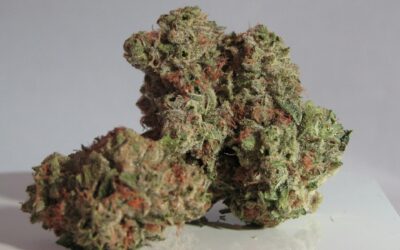One of the main differences between CBD vs THC is their psychoactive properties. THC is the psychoactive compound in cannabis that is responsible for the “high” feeling that people experience when they consume marijuana. CBD, on the other hand, is not psychoactive and does not produce any intoxicating effects. This makes CBD a popular choice for those who want to experience the potential therapeutic benefits of cannabis without the mind-altering effects.
Another difference between CBD and THC is their legality. While THC is still classified as a Schedule I substance in many countries, including the United States, CBD derived from hemp is legal under federal law. This has led to a surge in the availability of CBD products, from oils and tinctures to edibles and topicals. However, it’s important to note that the legal status of CBD can vary from state to state, so it’s always best to check local regulations before purchasing or using CBD products.
More
In terms of their uses, CBD and THC have different applications. THC is commonly used for recreational purposes, as it produces the euphoric effects that many people seek when using cannabis. It is also used for medical purposes, particularly for pain relief, nausea and vomiting, and muscle spasticity. CBD, on the other hand, is primarily used for its potential therapeutic benefits. It has been studied for its anti-inflammatory, analgesic, and anti-anxiety properties, and is commonly used to alleviate symptoms associated with conditions such as epilepsy, chronic pain, anxiety disorders, and sleep disorders.
While CBD vs THC have different effects and uses, they can also work together synergistically in what is known as the entourage effect. This refers to the theory that the different compounds in cannabis, including CBD and THC, work together to enhance each other’s therapeutic effects. Some researchers believe that CBD can help mitigate the psychoactive effects of THC, making it a more balanced and well-tolerated option for those who may be sensitive to the intoxicating effects of THC.
In conclusion, CBD and THC are two distinct compounds found in cannabis with different effects and potential benefits. While THC is psychoactive and primarily used for recreational purposes, CBD is non-psychoactive and primarily used for its potential therapeutic properties. Both compounds have their own unique applications and can also work together synergistically. As more research is conducted on cannabis and its compounds, we can expect to gain a better understanding of how these substances interact with our bodies and minds.
What is CBD?
CBD, short for cannabidiol, is a non-intoxicating compound found in the cannabis plant. It is one of over 100 cannabinoids that have been identified in cannabis. Unlike THC, CBD does not produce a “high” or psychoactive effect. This makes it an appealing option for those seeking relief from various symptoms without the mind-altering effects of THC.
CBD can be derived from both hemp and marijuana plants. Hemp-derived CBD products are legal in many countries, while marijuana-derived CBD products may be subject to legal restrictions depending on the jurisdiction.
Over the past few years, CBD has gained significant attention and popularity due to its potential therapeutic benefits. Research has shown that CBD may have anti-inflammatory, analgesic, and anti-anxiety properties, among others. This has led to an increased interest in using CBD as a natural alternative for managing various conditions, including chronic pain, anxiety disorders, epilepsy, and even certain types of cancer.
One of the reasons why CBD has gained so much attention is its potential to provide relief without the adverse side effects commonly associated with traditional medications. Many pharmaceutical drugs used to treat chronic conditions often come with a long list of side effects, ranging from mild discomfort to severe complications. CBD, on the other hand, is generally well-tolerated and has a good safety profile, making it an attractive option for those seeking a more natural approach to their health.
More
Furthermore, CBD has shown promise in the field of mental health. Studies have suggested that CBD may have antidepressant and anxiolytic effects, making it a potential option for individuals struggling with mood disorders such as depression and anxiety. Additionally, CBD has been investigated for its potential in managing post-traumatic stress disorder (PTSD) symptoms, with some promising results.
It is important to note that while CBD holds great promise, more research is needed to fully understand its mechanisms of action and potential benefits. The regulatory landscape surrounding CBD is also evolving, with many countries and states implementing their own regulations and guidelines. As such, it is crucial for consumers to do their due diligence and ensure they are purchasing CBD products from reputable sources that adhere to quality standards and comply with local regulations.
In conclusion, CBD is a non-intoxicating compound derived from the cannabis plant that offers potential therapeutic benefits without the psychoactive effects of THC. Its versatility and relatively low risk of side effects make it an appealing option for those seeking alternative treatments for various conditions. However, further research is needed to fully unlock the potential of CBD and establish its efficacy in different contexts.
What is THC?
THC, short for delta-9-tetrahydrocannabinol, is the primary psychoactive compound in cannabis. It is responsible for the “high” or euphoric feeling that is often associated with marijuana use. THC binds to cannabinoid receptors in the brain and central nervous system, producing various effects on mood, cognition, and perception.
Like CBD, THC can also be derived from both hemp and marijuana plants. However, marijuana plants are typically bred to have higher levels of THC, while hemp plants contain lower levels of THC and higher levels of CBD.
When THC is consumed, it interacts with the endocannabinoid system in the body, which is responsible for regulating various physiological and cognitive processes. The endocannabinoid system consists of cannabinoid receptors, endocannabinoids (naturally occurring compounds that bind to these receptors), and enzymes that break down these compounds.
More
Upon consumption, THC binds to the cannabinoid receptors, primarily the CB1 receptors, which are predominantly found in the brain and central nervous system. This binding activates the receptors and triggers a cascade of chemical reactions, resulting in the psychoactive effects associated with THC.
The effects of THC can vary depending on factors such as the dosage, method of consumption, and individual tolerance. Common effects of THC include relaxation, euphoria, altered perception of time and space, increased appetite, and enhanced sensory experiences. However, it is important to note that the effects of THC can also vary from person to person, and some individuals may experience negative effects such as anxiety, paranoia, or impaired cognitive function.
THC is commonly consumed through smoking or vaporizing dried cannabis flowers, but it can also be found in various other forms such as edibles, oils, tinctures, and concentrates. The onset and duration of the effects can vary depending on the method of consumption. When smoked or vaporized, THC enters the bloodstream quickly, leading to rapid onset of effects. On the other hand, when consumed orally, such as in the form of edibles, the effects may take longer to kick in but can last for a longer duration.
More
It is worth noting that the legality of THC varies from country to country and even within different states or provinces. In some places, THC is strictly regulated and can only be obtained through medical prescriptions or in specific circumstances, while in others, it may be legal for recreational use. It is important to be aware of the laws and regulations regarding THC in your jurisdiction before using or possessing it.
Overall, THC is a potent psychoactive compound found in cannabis that produces a range of effects on mood, cognition, and perception. Its interaction with the endocannabinoid system in the body contributes to its psychoactive properties. Understanding the effects and legal status of THC is essential for responsible cannabis use.
Key Differences (CBD vs THC)
While CBD vs THC are both cannabinoids, they have different effects on the body and mind. Here are some key differences between the two:
Psychoactive Effects
One of the main differences between CBD vs THC is their psychoactive effects. THC is psychoactive and produces a euphoric high, while CBD is non-intoxicating and does not produce a high. This is because THC binds to the CB1 receptors in the brain, which are responsible for the psychoactive effects, while CBD does not have a strong affinity for these receptors.
Legal Status
The legal status of CBD vs THC varies depending on the jurisdiction and the source of the compound. In many countries, hemp-derived CBD products with less than 0.3% THC are legal, while marijuana-derived CBD products may be subject to stricter regulations. However, the legality of THC varies more widely, with some countries allowing its medical use, others allowing recreational use, and some prohibiting it entirely.
Medical Uses (CBD vs THC)
CBD vs THC have different medical uses. CBD is commonly used to help manage symptoms such as pain, inflammation, anxiety, and seizures. It is also being studied for its potential therapeutic effects on conditions such as epilepsy, multiple sclerosis, and Parkinson’s disease. In fact, the FDA has approved a CBD-based medication called Epidiolex for the treatment of certain types of epilepsy.
THC, on the other hand, is often used for its analgesic (pain-relieving) and anti-nausea properties. It is also used to stimulate appetite in patients undergoing chemotherapy and to help manage symptoms of conditions such as glaucoma and HIV/AIDS. Additionally, THC has been found to have potential anti-inflammatory and neuroprotective properties, although more research is needed to fully understand its medical benefits.
In conclusion, while CBD and THC are both cannabinoids, they have distinct differences in their psychoactive effects, legal status, and medical uses. Understanding these differences is crucial for individuals considering using these compounds for therapeutic purposes or for those who simply want to educate themselves about the potential benefits and risks associated with CBD and THC.
Potential Benefits
Both CBD vs THC have shown potential benefits in various areas of health and wellness. Here are some of the potential benefits associated with each compound:
Potential Benefits of CBD:
- Relief from pain and inflammation
- Reduction of anxiety and depression symptoms
- Management of epilepsy and seizure disorders
- Possible neuroprotective effects
- Anti-inflammatory properties
- Improved skin health and reduced acne
- Potential anti-cancer properties
- Support for cardiovascular health
- Promotion of bone growth and healing
- Reduction of psychotic symptoms in schizophrenia
Potential Benefits of THC:
- Pain relief
- Reduction of nausea and vomiting
- Stimulation of appetite
- Management of glaucoma
- Improvement of sleep quality
- Relief from muscle spasms and tremors in multiple sclerosis
- Alleviation of symptoms in Crohn’s disease
- Possible treatment for PTSD
- Reduction of intraocular pressure in the eyes
- Anti-inflammatory effects
CBD and THC, the two main compounds found in cannabis plants, have gained significant attention for their potential health benefits. CBD, or cannabidiol, has been studied extensively and has shown promise in various areas of health and wellness. One of the most well-known benefits of CBD is its ability to provide relief from pain and inflammation. It has been used as a natural alternative to traditional pain medications, offering a more holistic approach to managing chronic pain conditions. CBD has also demonstrated potential in reducing anxiety and depression symptoms, providing a non-addictive option for those struggling with mental health disorders.
More
In addition to its effects on pain and mental health, CBD has shown promise in managing epilepsy and seizure disorders. The compound has been used to reduce the frequency and severity of seizures, offering hope to individuals who have not responded well to traditional anti-seizure medications. CBD is also believed to have neuroprotective effects, which means it may help protect the brain from damage caused by various neurological conditions.
Furthermore, CBD has been found to have anti-inflammatory properties, making it a potential treatment option for conditions characterized by chronic inflammation, such as arthritis. It has also been studied for its potential in improving skin health and reducing acne. Additionally, some research suggests that CBD may have anti-cancer properties and could support cardiovascular health by reducing high blood pressure.
More
On the other hand, THC, or tetrahydrocannabinol, the psychoactive compound in cannabis, also offers potential benefits. THC is known for its pain-relieving properties and has been used to alleviate chronic pain conditions. It has also been found to reduce nausea and vomiting, making it a valuable option for individuals undergoing chemotherapy or experiencing severe nausea.
THC is well-known for its ability to stimulate appetite, often referred to as the “munchies” effect. This can be beneficial for individuals with appetite loss due to medical conditions or treatments. Additionally, THC has been studied for its potential in managing glaucoma by reducing intraocular pressure in the eyes.
Another potential benefit of THC is its impact on sleep quality. Many individuals report improved sleep when using THC, which can be beneficial for those struggling with insomnia or other sleep disorders. It has also shown promise in providing relief from muscle spasms and tremors in multiple sclerosis, as well as alleviating symptoms in Crohn’s disease.
More
Moreover, THC may have potential as a treatment for post-traumatic stress disorder (PTSD). Some studies have suggested that THC could help reduce symptoms associated with PTSD, such as anxiety and nightmares. Additionally, THC has anti-inflammatory effects, which can be beneficial for various inflammatory conditions.
In conclusion, both CBD and THC offer a range of potential benefits in different areas of health and wellness. While CBD is known for its analgesic, anti-anxiety, and anti-inflammatory properties, THC provides pain relief, appetite stimulation, and potential benefits for sleep and certain medical conditions.
Further research is needed to fully understand the therapeutic potential of these compounds and their specific applications in various health conditions.






